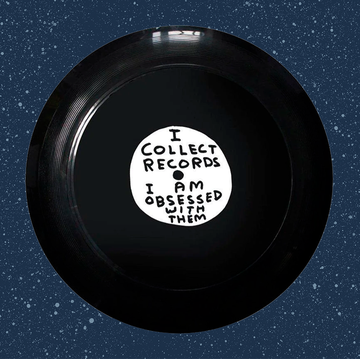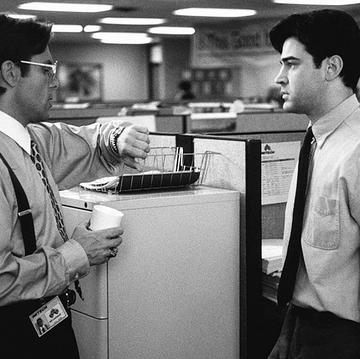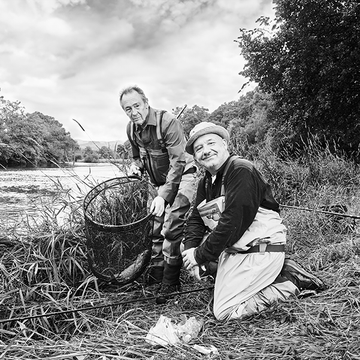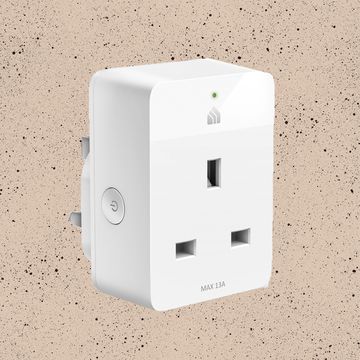Addiction comes in many forms. Unfortunately, when the topic comes up, we tend to default to its more insidious and obvious expressions. Alcoholism and substance abuse, while complicated diseases, are easy to recognise in ourselves and in others. Less obvious, however, are the compulsive and potentially harmful patterns that arise from other relatively benign behaviours. Numerous studies have begun to look at the impact of social media addiction, just as people have started to discuss their addictions to binge-watching television shows. Pornography abuse, and the effects it has on the brain, particularly those of younger people, has become a hotly debated topic as well. Even things you might otherwise think of as beneficial, like exercise, can fall under the realm of addiction, as we discussed here recently.
While there are frameworks for understanding and treating the more typically recognised addictions, it's possible that many of us are developing habits that we might not even recognise as potentially detrimental, particularly as the pace of our digital lives incentivises and exacerbates those behaviours. As with any addiction, the first step to mitigating its impact on your life is recognising it might be there in the first place.
That was the impetus behind a survey put together by Rehab Pathway, a group that offers resources for people interested in learning more about recovery options. Recognising addictive aspects in our everyday lives might help chip away at our inability to talk about more pernicious addictions. That's something that is sorely needed at the moment, in the midst of the opioid crisis, and at a time when one in seven Americans will develop a substance abuse problem at some point, according to a study last year by the Surgeon General, but only one in 10 will get treatment. The stigma of addiction that leads addicts to often feel otherised or outcast is partly to blame.
"A lot of people don't understand the mechanics behind addiction, and they can't really relate to that on a normal, everyday level," said Mike Genevieve of Rehab Pathway. "When you start relating a scale typically used for addiction to other topics, daily dependencies that we all live with and you don't think of as an addiction—Ah, I need to get home and watch the rest of Stranger Things tonight!—when you start to ask these questions, you might answer yes to more than you think you would. Our goal was to bring it down to the everyday person so they can relate."
To achieve that, they repurposed the American Psychological Association's DSM-5 Substance Dependence criteria into a different context. Typically, the questions there will ask someone at risk of abusing a substance if they take a larger amount than intended, if they want to cut down but cannot, spend a lot of time attaining the drug, or if they have their home, work, or school life affected by using it. Here, Rehab Pathway's survey of 1,000 Americans transposed that framework onto a series of common, daily routines: internet use, social media use, binge-watching, pornography, coffee, and exercise.
"Part of what we looked at with the study were all these things that may not immediately come to mind when you think of addiction," added John Bernasconi, also part of the team at Rehab Pathway. "I'm on the computer eight hours a day at work. That's a third of my time I spend looking at a screen. Whether or not you are actually addicted, it's something worth looking at."
For each of the habits examined, respondents answered negatively or affirmatively to seven questions. While it might not be a shock to find that 64.2 percent of respondents believe that they should drink less coffee, some of the other results were indeed surprising: 13.5 percent of people said they sometimes think, "I should exercise less," while 56.8 percent said they have injured themselves while exercising, or have been instructed not to by a doctor, but continued anyway.
Even for Rehab Pathway, some of the results were a surprise.
"We didn't expect to get so many yeses to some of the categories, exercise in particular. People answered that they thought they should exercise less? I didn't really think that was a thought that people who exercise have," Genevieve said.
Elsewhere, 66 percent of people said that their internet use has had negative consequences, including losing sleep or arriving late to work because of they were online, while 50 percent reported continuing to use the internet despite suffering from physical side effects like headaches, or that they continued use despite being told by someone they trust that they should take a break. A lower percentage, 45.8 percent and 39.3 percent, respectively, said the same for social media use, and 38.4 percent for binge-watching television.
"We look at addiction primarily as substances, but I don't think a lot of us realise how much time we spend doing these things, and the effect these things have on our lives," Bernasconi said. "Looking at the past 10 years, everything has changed about the way we live. Just read the questions and ask yourself, do I show any of these characteristics? A lot of time we're so caught up in what we're doing that we don't think about what we're doing."
Each individual is different, and this is not intended to be a medical or scientific diagnosis. However, for those of us who suspect we could be struggling with, or on the verge of, addictive behaviour, answering the questions yourself could be a beneficial first step.














